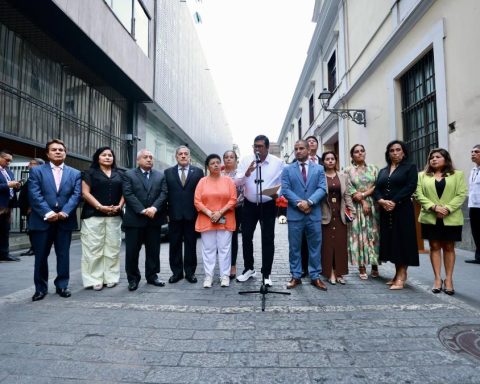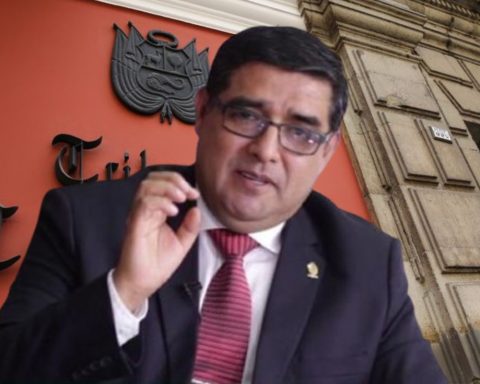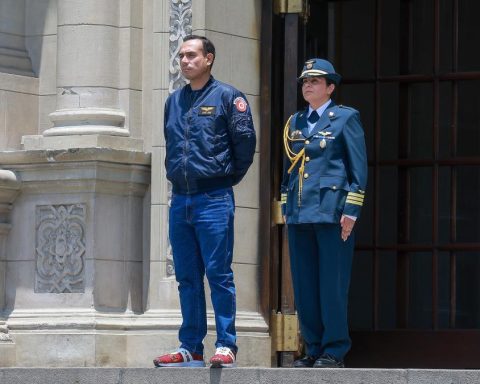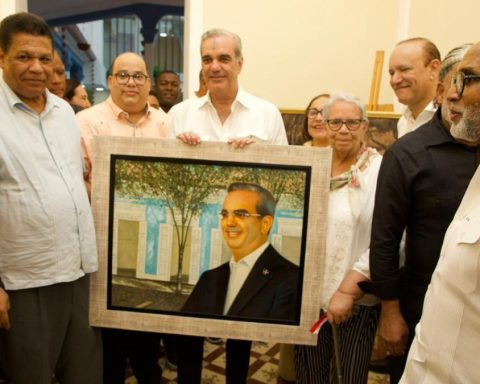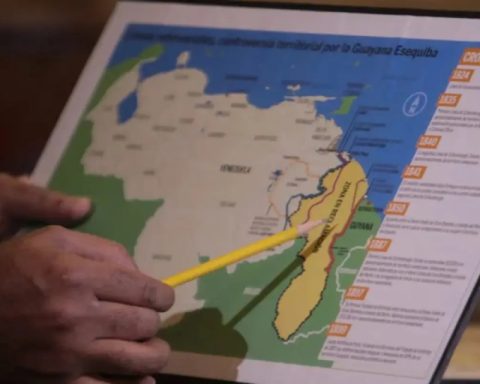The ex-president Francis Sagasti has launched different ideas to overcome the crisis. One of them, the one that is generating the most debate, is that signatures are collected to propose to Congress a constitutional reform that makes possible the advancement of general elections. However, apart from citizen adhesions, 66 votes are needed in plenary to give way to a referendum. former anti-corruption attorney Cesar Azabache is shown in favour. Here are their reasons.
Francisco Sagasti’s proposal is perfectly constitutional, but the question is whether it is realistic. What do you think?
Exactly. There are two points. An initiative of this type has to go through Congress and to reach the referendum 66 votes are required. The second thing —and I am going to paraphrase Diego García-Sayán— is that if general elections are called without having changed the political system, the risk you face is…
Back to the same.
A result similar to the above, exact. Those are the practical limits of the proposal. However, it seems to me that the objection that the results may be similar is a risk to be taken. We have not had time to generate the possibility of change, so we would be approaching an election defined in terms of a clientelistic society. What we could have gained – and it is not little – is the awareness that Peruvian voters do not elect representatives, but business managers and contract brokers. It seems to me that now we have it clear.
YOU CAN SEE: Bustamante: “It seems useless to me to present vacancy motions that do not prosper, time is wasted”
Are you talking about Congress?
Yes, of Congress, and by extension of the Presidency of the Republic. The matrix by which Castillo, Fujimori’s candidacy was formed is the same. What we have discussed in these elections is which of the two clientelistic profiles came to power.
Do you think it is better to run the risk of repeating a similar cycle than to stay at this point?
Correct. At the very least, the next cycle will start with a “no”.
With a “no” in what sense?
The thing is having a citizen movement that leads to general elections is already having a “no”. How much can that “no” impact the result? Hopefully as much as possible. It may not be a great impact, it is true, but, at the moment, how many parliamentarians can respond to a profile oriented towards public interests? Three four five?
YOU CAN SEE: Alva on Sagasti’s proposal: It is very similar to Torres’s, I think they clicked
But the 66-vote hurdle remains.
Since Fujimorism fell here, no process of this type has started from Congress. The Parliament of 2000, which agreed to advance elections, was one forced by the weight of the evidence of the Fujimori and Montesinos cases and the escape of the former. Whoever accepted Sagasti as president did so reluctantly. 66 votes is difficult, yes, but we do not want a conscious and active vote. What we want is 66 votes driven, forced by the empire of the citizen’s need to express rejection of what is happening.
It is inevitable, therefore, that citizen pressure manifests itself not only in networks, but above all in the streets.
Yes. Now, I think, that the cycle of protests led by the right-wing blocs in Congress has done a lot of damage to the resource of the street. There has been a huge ambiguity. My impression is that the street is not very active. It is being activated by the pardon… however, it cannot be compared with the conclusive force of the demonstrations against Merino.
The fence is high. Therefore, for a Congress to feel pressured, you need the people behind it. How is it activated?
It is precisely citizen movements are activated. They are not induced, they are not bribed. The idea of 75,000 signatures, at least, is fresh and agglomerating, forcing us to sign with others. That at least already represents a collective, an idea that can be formally expressed on a piece of paper that is delivered to a physical place. Can that encourage citizens to activate? I prefer to bet on that, to stay in my opinion column and repeat, every fortnight, that I don’t like what I see.
YOU CAN SEE: They present a project to call general elections in case of vacancy or resignation of the president
People also have to be told that this proposal is not for immediate execution. It is not short term. It involves overcoming stages.
It is true. Now, what also happens is that we have altered our perception of the short and the medium. We have become accustomed to thinking that the short is tomorrow, when the political, institutional processes…
They mature.
They have to mature thoughtfully. So time doesn’t scare me. The problem of the signatures is not really so much time, but how to turn this collection into a civic process of reunion, in a collective and public space, because signing those minutes should be a party.
And what do you say to the people who question that the deadlines must be respected, that the people voted for a government and a five-year Congress?
True, people elected for five years. What I can say is that the anticipation of general elections must be reached by means of votes, via a referendum. And if those votes are in favor of the permanence of the Government and Congress, then it will be a democratic result. The method seduces because it assumes that we all vote. It is not an act of force, but an act that would come from the citizens themselves.

